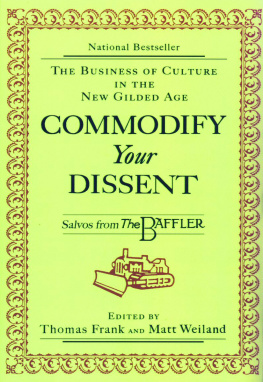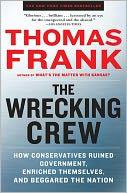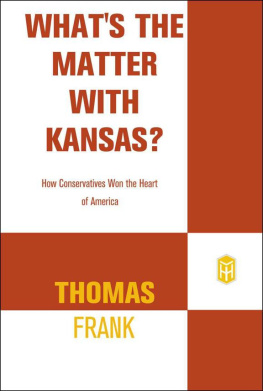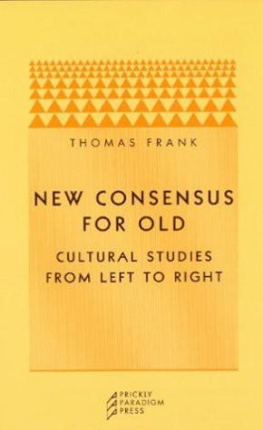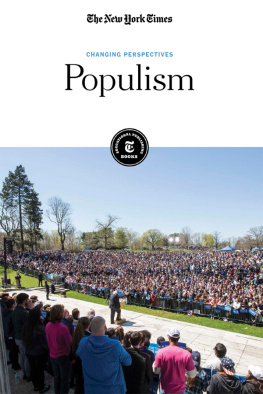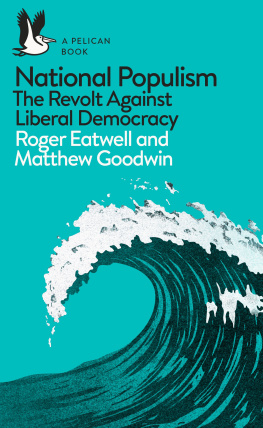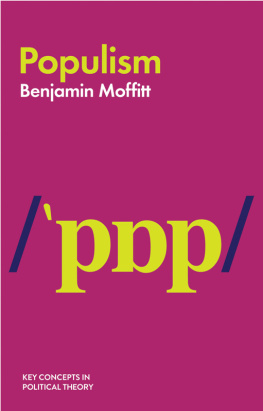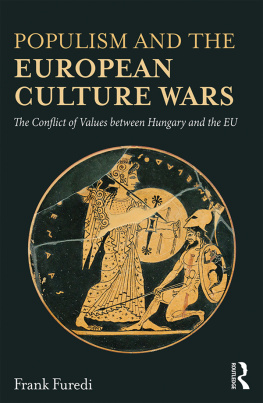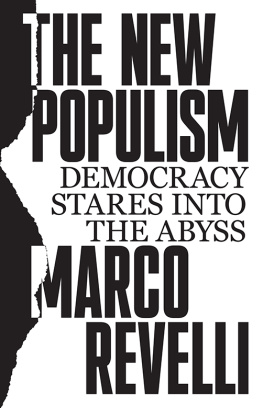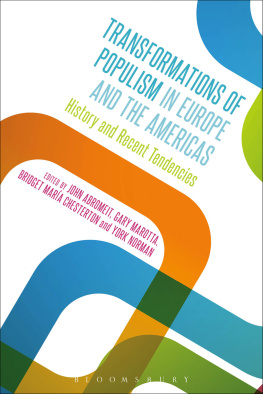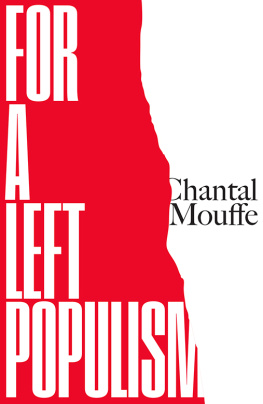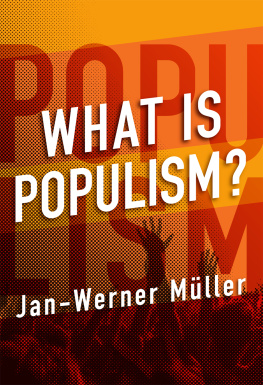
PEOPLE WITHOUT POWER
Thomas Frank is the author of Listen, Liberal ; Pity the Billionaire ; The Wrecking Crew ; and Whats the Matter with Kansas? A former columnist for The Wall Street Journal and Harpers , Frank was also the founding editor of The Baffler . He lives outside Washington, D.C.
Scribe Publications
1820 Edward St, Brunswick, Victoria 3056, Australia
2 John St, Clerkenwell, London WC1N 2ES, United Kingdom
Published by Scribe 2020
Copyright Thomas Frank 2020
All rights reserved. Without limiting the rights under copyright reserved above, no part of this publication may be reproduced, stored in or introduced into a retrieval system, or transmitted, in any form or by any means (electronic, mechanical, photocopying, recording or otherwise) without the prior written permission of the publishers of this book.
The moral rights of the author have been asserted.
Excerpt from 17 from THE PEOPLE, YES by Carl Sandburg. Copyright 1936 by Houghton Mifflin Harcourt Publishing Company, renewed 1981 by Carl Sandburg. Reprinted by permission of Houghton Mifflin Harcourt Publishing Company. All rights reserved.
People Without Power began as an essay that appeared in The Guardian in May 2018; pieces from that original essay are incorporated into the introduction and chapter one. Fragments from a Guardian essay I wrote in February 2017 appear in chapter seven. The Utopia of Scolding is an idea I first rolled out in Harpers Magazine in April 2018; chunks of that essay are incorporated into chapters four and eight. I wrote an introduction to everything that follows for The Baffler #42; hope I can live up to it.
9781925849288 (Australian edition)
9781912854226 (UK edition)
9781925938173 (ebook)
Catalogue records for this book are available from the National Library of Australia and the British Library.
scribepublications.com.au
scribepublications.co.uk
Who shall speak for the people?
Who knows the works from A to Z
so he can say, I know what the
people want? Who is this phenom?
where did he come from?
When have the people been half as rotten
as what the panderers to the people
dangle before crowds?
from The People, Yes by Carl Sandburg
CONTENTS
Introduction:
Conclusion:
INTRODUCTION
The Cure for the Common Man
Just a few short years ago we Americans knew what we were doing in the world. We were going to make the planet into one big likeness of ourselves. We had the experts; we knew how it was done. Our policy operatives would de-radicalize here and regime-change there; our economists would float billions to the good guys and slap sanctions on the bad; and pretty soon the whole world was going to be stately and neat, a place that was safe for debt instruments and empowerment seminars; for hors doeuvres in the embassy garden and taxis we hailed with our smartphone. Democracy! Of thee we sang.
Now we stand chastened, humiliated, bewildered. Democracy? We tremble to think of what it might do next.
Government of the people? When we open the door to ordinary peoplelet them actually influence what goes onthey will insist we make bigotry and persecution into our great national causes.
Government by the people? When we let the people have their sayunmanaged, uncuratedsome large part of them will choose the biggest blowhard on TV to be our leader. And then they will cheer for him as he destroys the environment and cracks down on migrant families.
Heed the voice of the plain people and all the levees of taste and learning will immediately be swamped. Half of them will demand that minorities be consigned to the back of the bus; the other half will try to confiscate the hard-won wealth of societys greatest innovators.
SO GOES THE wail of the American leadership class as they endure another year of panic over where our system is dragging them. They know on some level that what has happened in Washington isnt due to majority rule at all, but to money and gerrymandering and the electoral college and decades of TV programming decisions. But the anxiety cannot be dislodged; it is beyond the reach of reason: the people are out of control.
Populism is the word that comes to the lips of the respectable and the highly educated when they perceive the global system going haywire like this. Populism is the name they give to the avalanche crashing over the Alpine wonderland of Davos. Populism is what they call the mutiny that may well turn the supercarrier America into a foundering wreck. Populism, for them, is a one-word evocation of the logic of the mob; it is the people as a great rampaging beast.
What has happened, the thinkers of the Beltway and the C-Suite tell us, is that the common folk have declared independence from experts and along the way from reality itself. And so they have come together to rescue civilization: political scientists, policy advisers, economists, technologists, CEOs, joining as one to save our social order. To save it from populism.
This imagined struggle of expert versus populist has a fundamental, almost biblical flavor to it. It is a battle of order against chaos, education against ignorance, mind against appetite, enlightenment against bigotry, health against disease. From TED talk and red carpet, the call rings forth: democracy must be controlled... before it ruins our democratic way of life.
In attacking populism, the object is not merely to resist President Donald Trump, the nations thinkers say. Nor is the conflict of our times some grand showdown of Left and Right. Questions like that, they tell us, were settled long ago when the Soviet Union collapsed. No, the political face-off of today is something different: it pits the center against the periphery, the competent insider against the disgruntled sorehead. In this conflict, the side of right is supposed to be obvious. Ordinary people are agitated, everyone knows this, but the ones whose well-being must concern us most are the elites whom the people threaten to topple.
This is the core assumption of what I call the Democracy Scare. If the people have lost faith in the ones in charge, it can only be because something has gone wrong with the people themselves. As Jonathan Rauch, a senior fellow at Brookings and a contributing editor to the Atlantic , put it in the summer of 2016: Our most pressing political problem today is that the country abandoned the establishment, not the other way around.
DENUNCIATIONS OF POPULISM have been commonplace for years; they only flowered into a full-blown panic in 2016, when commentators identified populism as the secret weapon behind the unlikely presidential bid of the TV billionaire Donald Trump. Populism was also said to be the mysterious force that had permitted the self-identified outsider Bernie Sanders to do so well in the Democratic primaries. Populism was also the name of the mass delusion that had foisted Brexit on the United Kingdom. Indeed, once you started looking, unauthorized troublemakers could be seen trouncing ruling classes in countries all around the world. Populists were misleading people about globalization. Populists were saying mean things about elites. Populists were subverting traditional institutions of government. And populists were winning.
In basing our civilization on the consent of the plain people, it suddenly seemed that our ancestors had built on a foundation of sand. Democracies End When They Are Too Democratic blared the title of a much-discussed 2016 essay by Andrew Sullivan. An article in Foreign Policy expressed it more archly: Its Time for the Elites to Rise Up Against the Ignorant Masses.
Then came the unthinkable: the ignorant demagogue Trump was elected to the most powerful office in the world. Trumps victory that November only happened thanks to the Electoral College, an anti-populist instrument from long ago, but that irony quickly receded into the background. Instead, the Democracy Scare developed into a kind of hysteria. Across the world there were panels and convenings and academic projects dedicated to analyzing and theorizing and worrying about this thing called populism.
Next page


